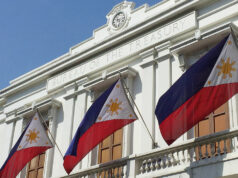Invest your way to a second passport
By Karl Angelo N. Vidal
FOREIGN travel has increasingly become breezier and almost seamless for Filipinos as their newfound wealth has allowed greater spending power, but a major hurdle continues to hamper their stay overseas: the weak Filipino passport.
In the Passport Index released by immigration consultancy firm Arton Capital, the Philippine passport was ranked 65th out of the 199 countries and economies surveyed this year. In the said index, 30 countries allow Philippine passport holders to enter without visa, while 31 countries issue visa upon arrival.
Recent statistics has also shown that the travel industry is a growing market in the Philippines. Filipinos who travelled abroad in 2016 spent a total of P543.4 billion, more than double compared with P153.9 billion spent in 2007, the latest data released by World Travel & Tourism Council.
In the next 10 years, the council predicted that outbound travel and tourism expenditure may spike up to P1.72 trillion.
These figures show there are Filipinos who have money to travel — and to invest. With this in mind, it has become the driving force of multinational law firm Harvey Law Group (HLG) to provide businessmen and travelers alike a second passport by investing.
Jean-François Harvey, HLG founder and worldwide managing partner, in a recent media roundtable in Makati introduced how citizenship by investment can be a great tool in exploring new markets and tourism destinations.
While it is possible to acquire second citizenship without hiring a law firm, Mr. Harvey said that the process is “more complicated than what government websites are saying.”
“There are unknown and unwritten rules when it comes for applying,” Mr. Harvey said. “The process is not simple. But since we’ve been doing this for so long, we make it simple.”
Since 1992, HLG has been providing investment immigration programs, particularly in residency and citizenship-by-investment programs in more than 20 jurisdictions such as Australia, Canada, Cyprus, France, Greece, Italy, New Zealand, Portugal, United States, United Kingdom and the Caribbean region.
“There is something for everybody, for every budget [for prospect investment], and for how much tax you want to pay. For example, you can have an affordable Subway franchise; you can have an expensive medical franchise,” the HLG founder said.
In conducting its business, the company is thorough in how its clients do their business, that is why 2% of prospective applicants get rejected, Mr. Harvey said.
“There is a process behind it. We must make sure if [our client is] a good person. We need to check our clients by looking if they have criminal records, or are involved in [dubious] business,” Mr. Harvey said.
He also said good health is also considered, since most of HLG’s citizenship programs offer free healthcare.
The VIP-oriented law firm is purely legal and transparent when it comes to its processes, he said.
“Our business is very public. We’re [not into] under-the-table processes. We’re very legitimate; there is law and immigration [policies to which we adhere]. There’s no funny business,” he said.
The most popular program under HLG is the citizenship in Cyprus. Its “platinum program,” albeit the most expensive, offers the best deal for most of its clients. Since Cyprus is a member of the European Union, clients use the citizenship to enter the European market.
Cyprus is also considered a tax haven by the firm since it offers only a 12.5% corporate tax, one of the lowest in the bloc.
To obtain Cypriot citizenship, a client must put invest €2 million euros worth of real estate investment. From there, clients can receive the same benefits of a European citizen, and can pass the citizenship to the client’s children.
“For investors who have successfully applied for the program, they’ve been able to secure a return on investment by renting or leasing out their property. These types of programs may appeal to second-generation, high net-worth Filipinos looking to reduce their risk by situating their assets in multiple locations,” HLG Country Manager Paul Boldy said in a statement.
While majority of HLG’s clients opt to avail of citizenship for new business opportunities, 10-12% seek a second passport for lifestyle purposes. With the help of HLG, investors can obtain passports that can take them “up to 125 countries” visa-free. A second passport is useful as it offers the power to travel to more countries without applying for visa.
“Right now in the Philippines, people are looking for travel. Therefore, they would [tend] to go for the most affordable program, which is the Caribbean program. They would opt for Dominica, Antigua [and Barbuda], Grenada, St. Lucia, and St. Kitts [and Nevis],” Mr. Harvey noted.
The Caribbean citizenship program is popular to clients who would want to avail retirement homes and beachfront properties.
While HLG has a back office in Ortigas for eight years now, the company opened an office in Makati office only in February because of the continuous demand from the local business community as well as booming domestic economy, Mr. Harvey said.
“For the last year or so, we are receiving more and more queries from the Philippine business community about second citizenship and immigration in general,” he said.
He also noted that HLG is bullish on the possible overseas expansion of some Filipino businesses.
“In this time, the Philippine economy is concentrating on the domestic market. But we’re starting to feel like the business community in the Philippines is starting to look overseas now,” he said.
“That’s why we think the time is right. We’re here to stay,” he added.



